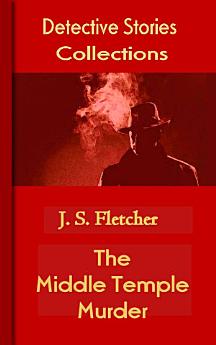The Middle Temple Murder: Detective Stories Collections
About this ebook
Spargo lived in Bloomsbury, on the west side of Russell Square. Every night and every morning he walked to and from the Watchman office by the same route—Southampton Row, Kingsway, the Strand, Fleet Street. He came to know several faces, especially amongst the police; he formed the habit of exchanging greetings with various officers whom he encountered at regular points as he went slowly homewards, smoking his pipe. And on this morning, as he drew near to Middle Temple Lane, he saw a policeman whom he knew, one Driscoll, standing at the ...
Ratings and reviews
About the author
At age 20, Fletcher began working in journalism, as a sub-editor in London. He subsequently returned to his native Yorkshire, where he worked first on the Leeds Mercury using the pseudonym A Son of the Soil, and then as a special correspondent for the Yorkshire Post covering Edward VII's coronation in 1902.
Fletcher's first books published were poetry. He then moved on to write numerous works of historical fiction and history, many dealing with Yorkshire, which led to his selection as a fellow of the Royal Historical Society.
Fletcher wrote several novels of rural life in imitation of Richard Jefferies, beginning with The Wonderful Wapentake (1894). Michael Sadleir stated that Fletcher's historical novel, When Charles I Was King (1892), was his best work.
In 1914, Fletcher wrote his first detective novel and went on to write over a hundred more, many featuring the private investigator Ronald Camberwell.











